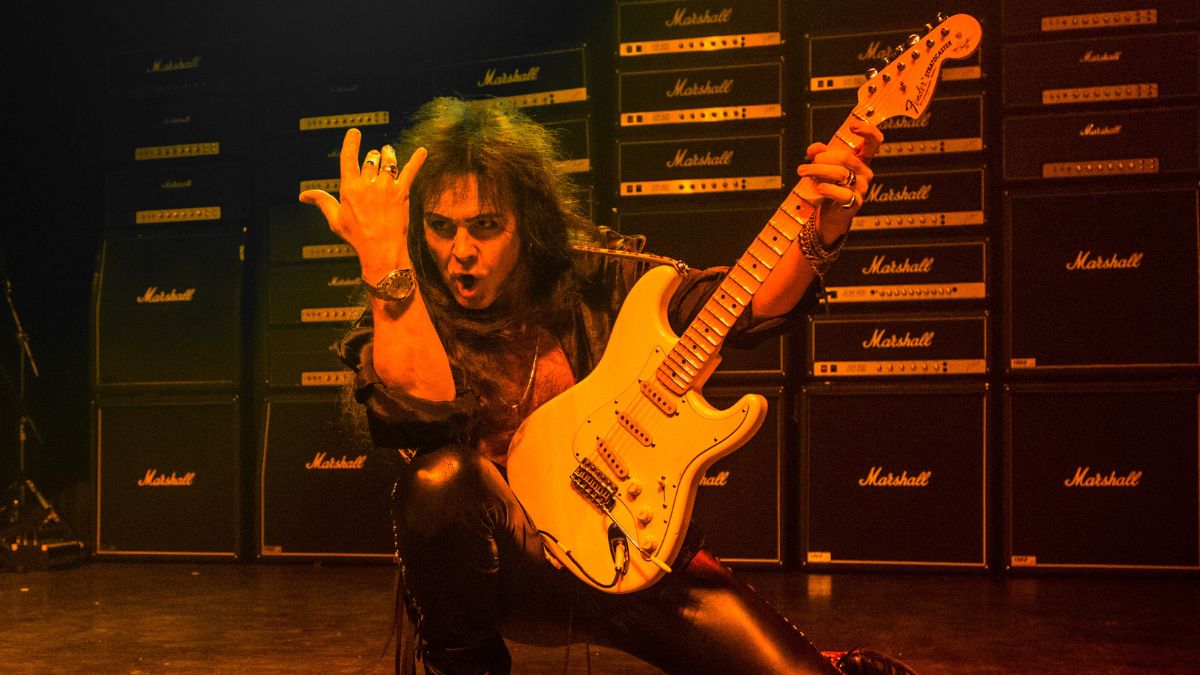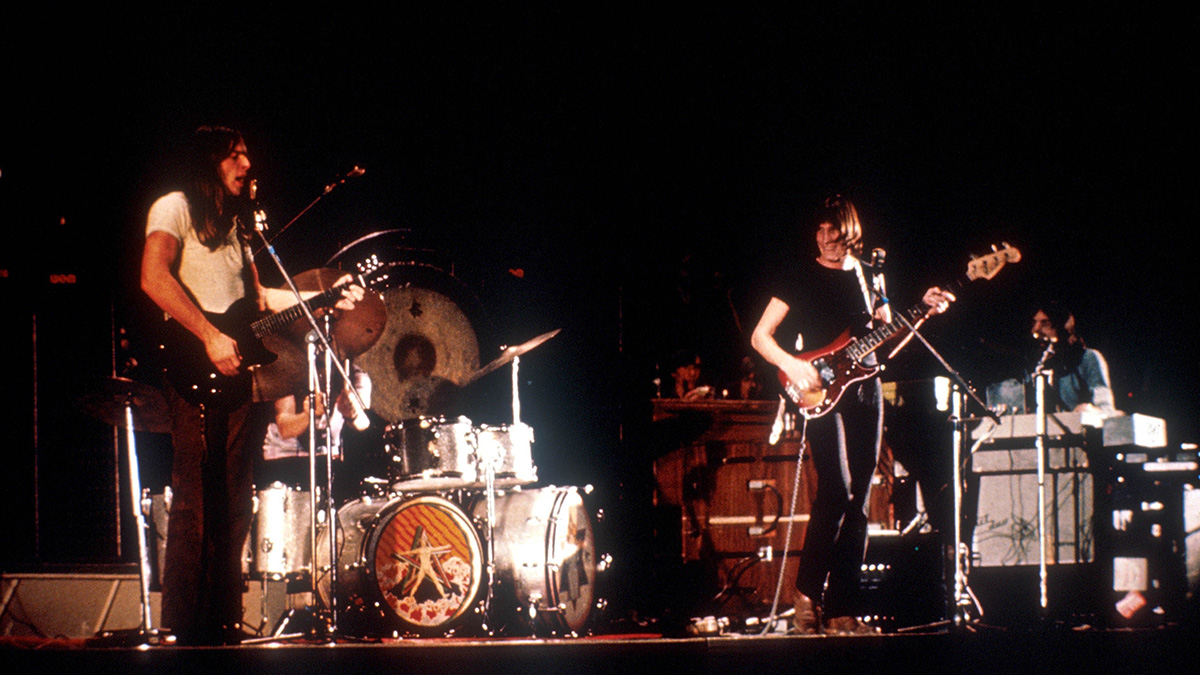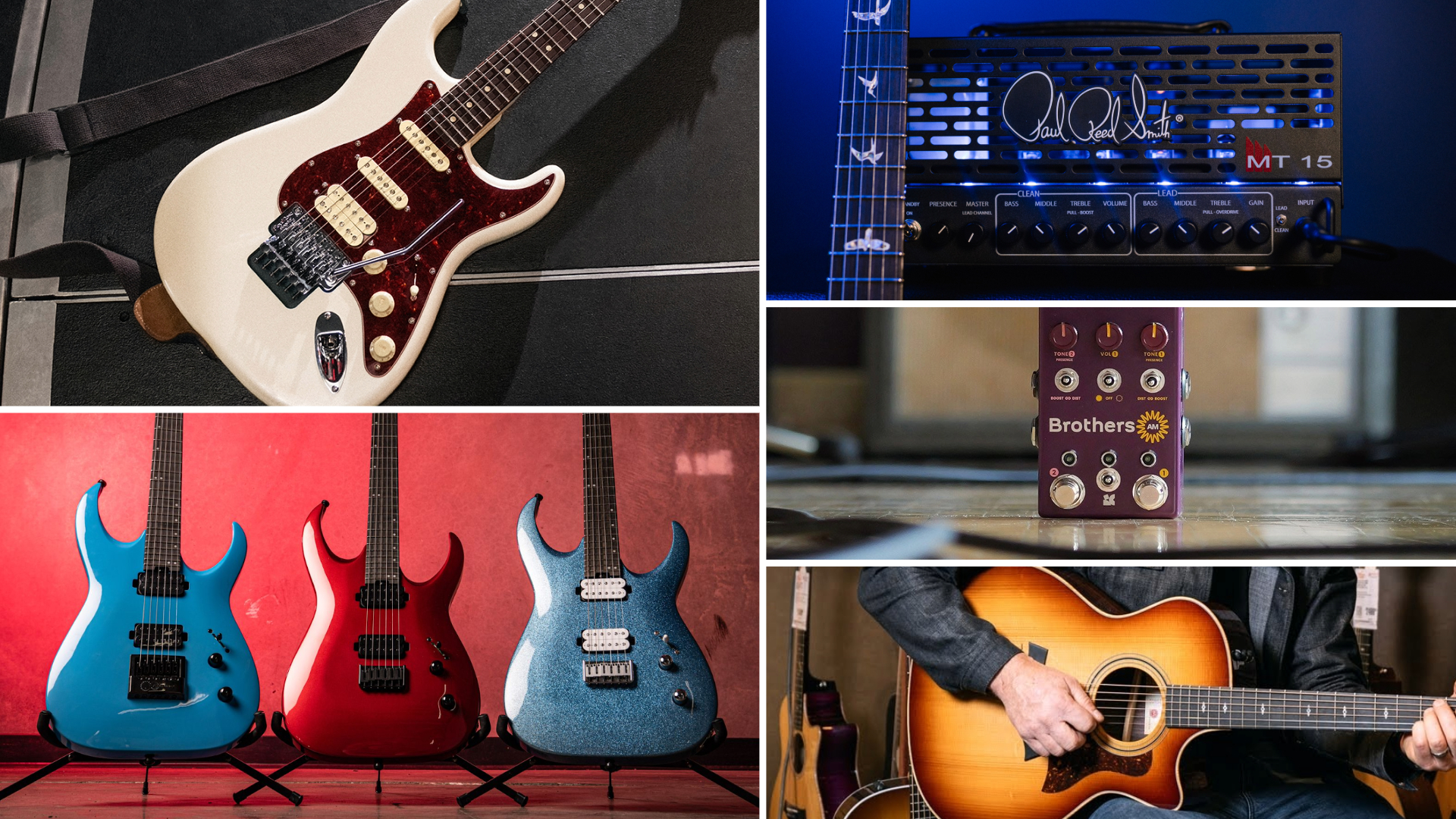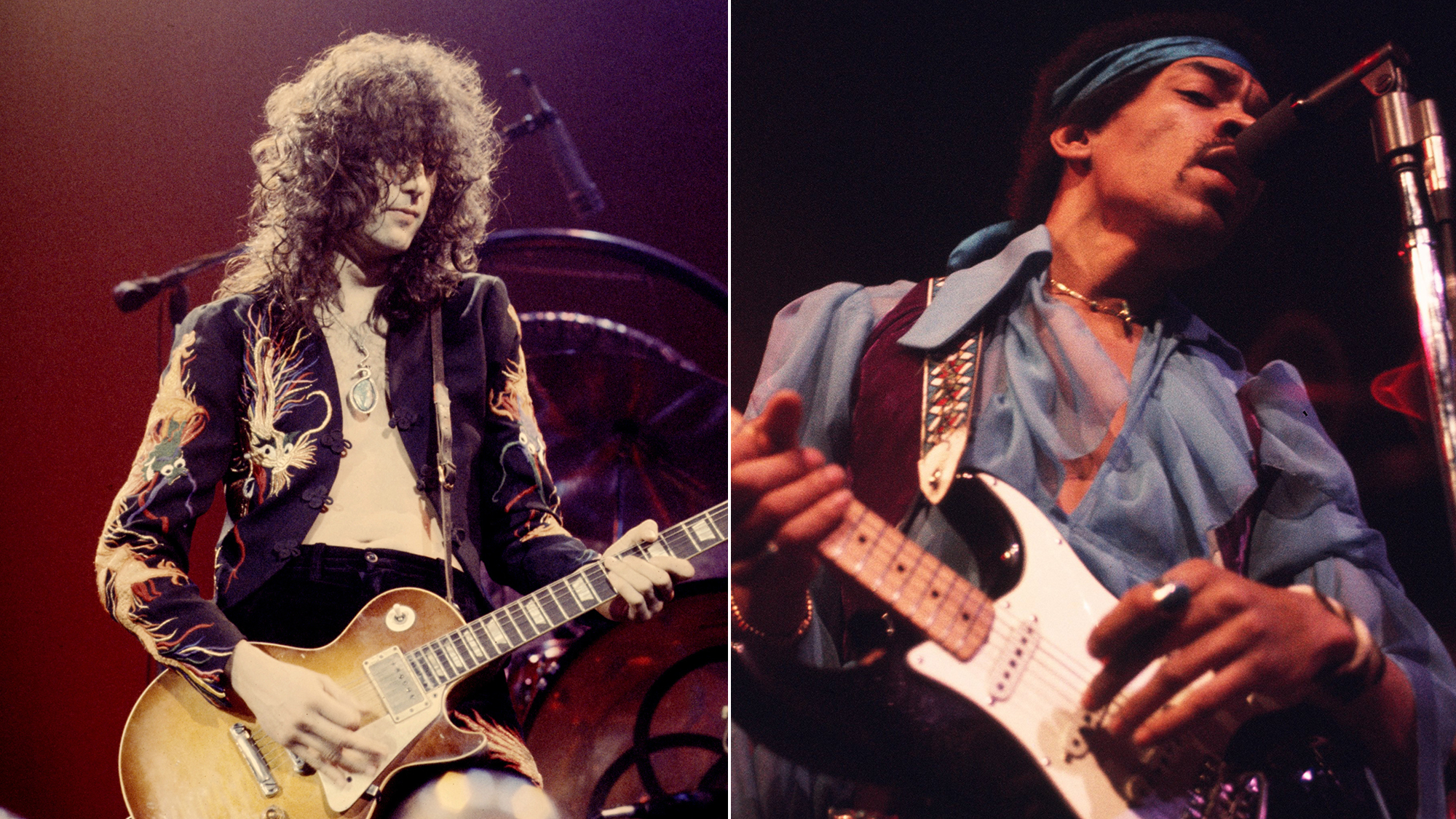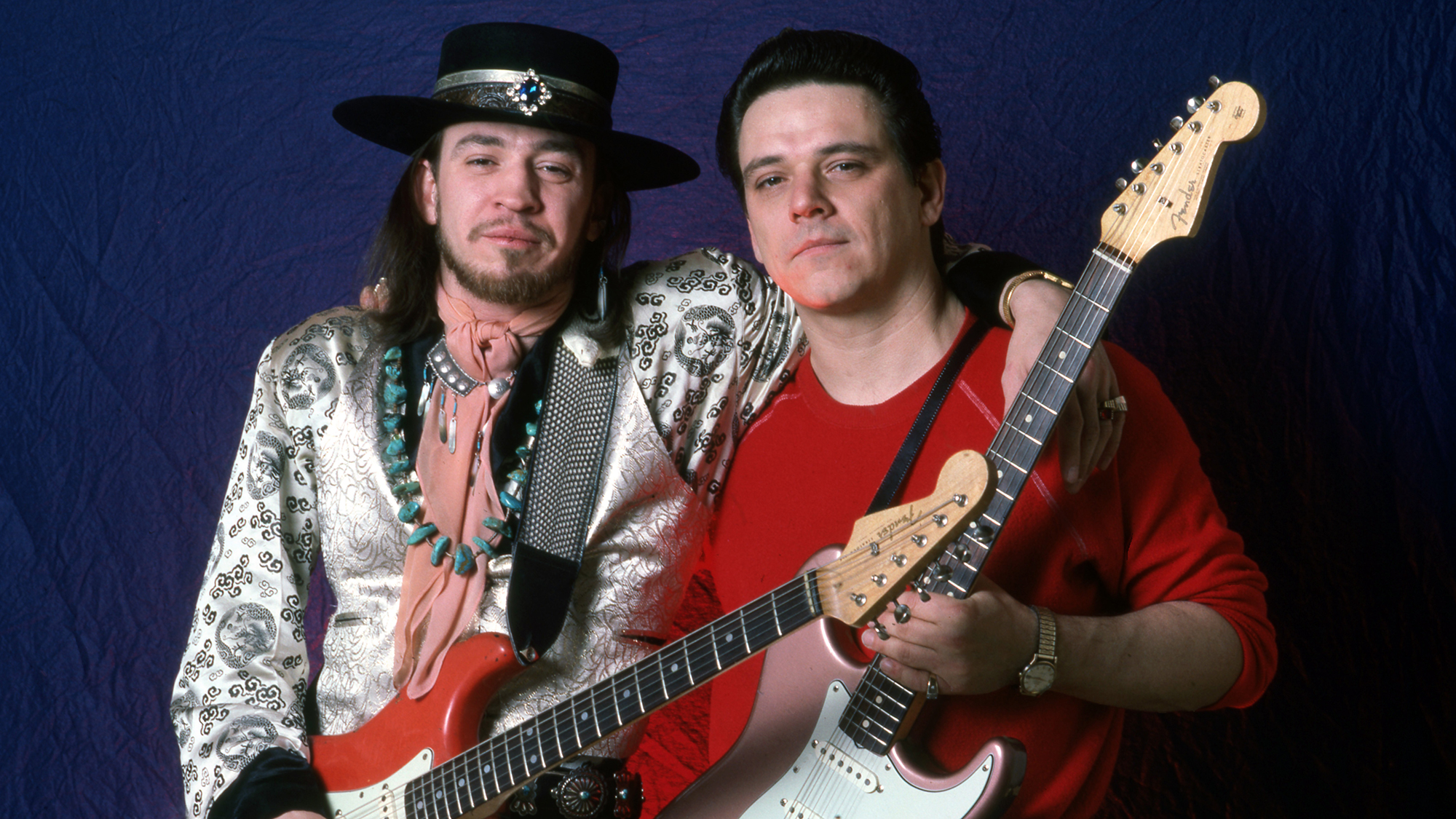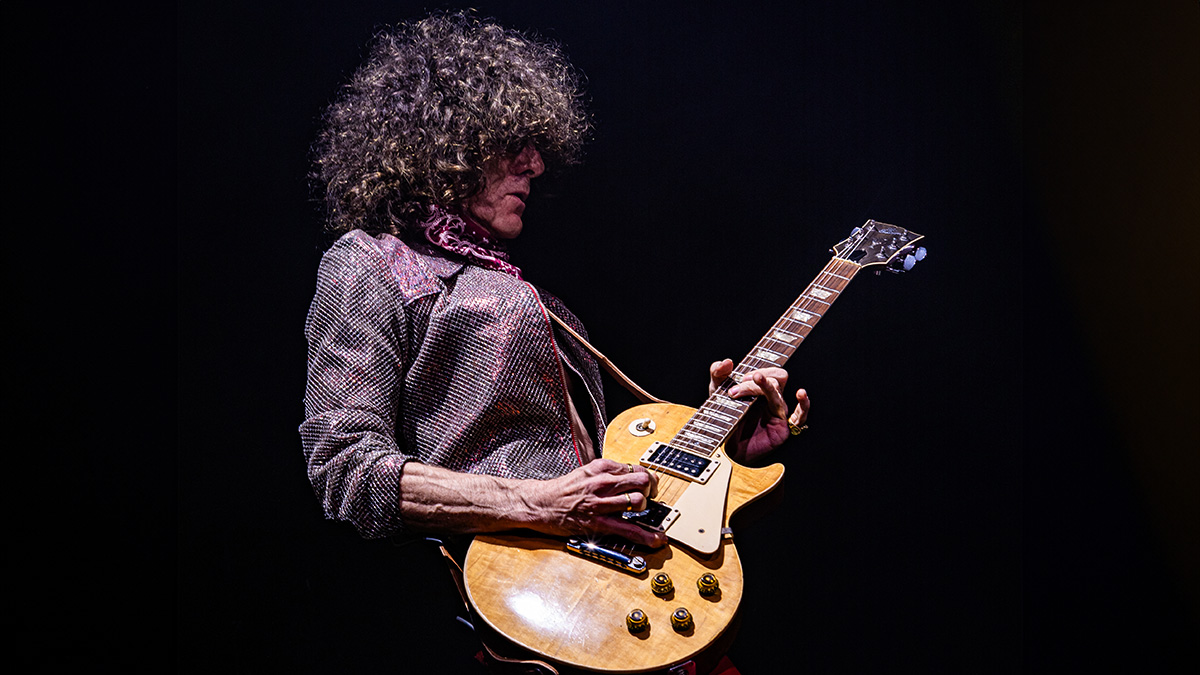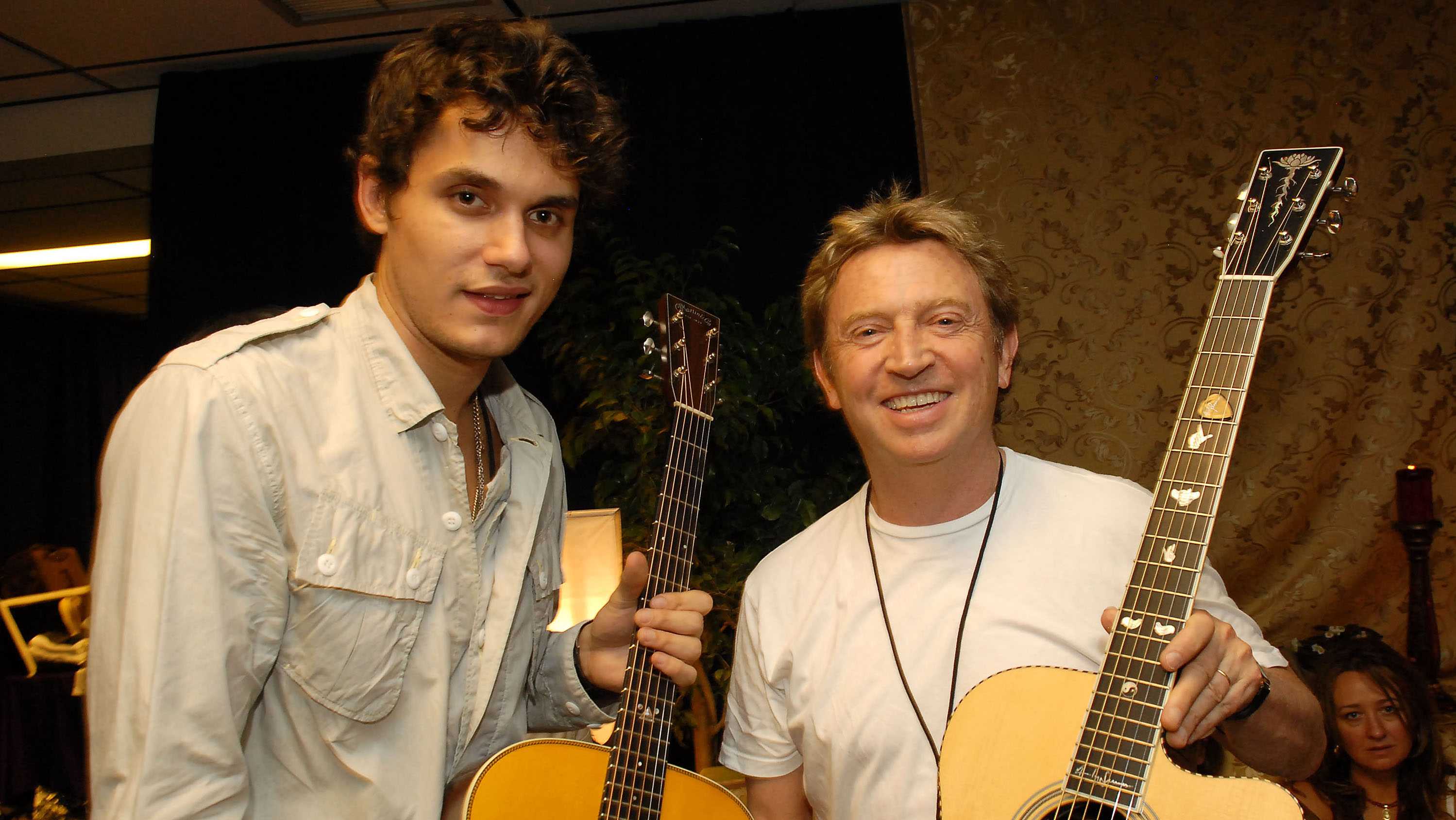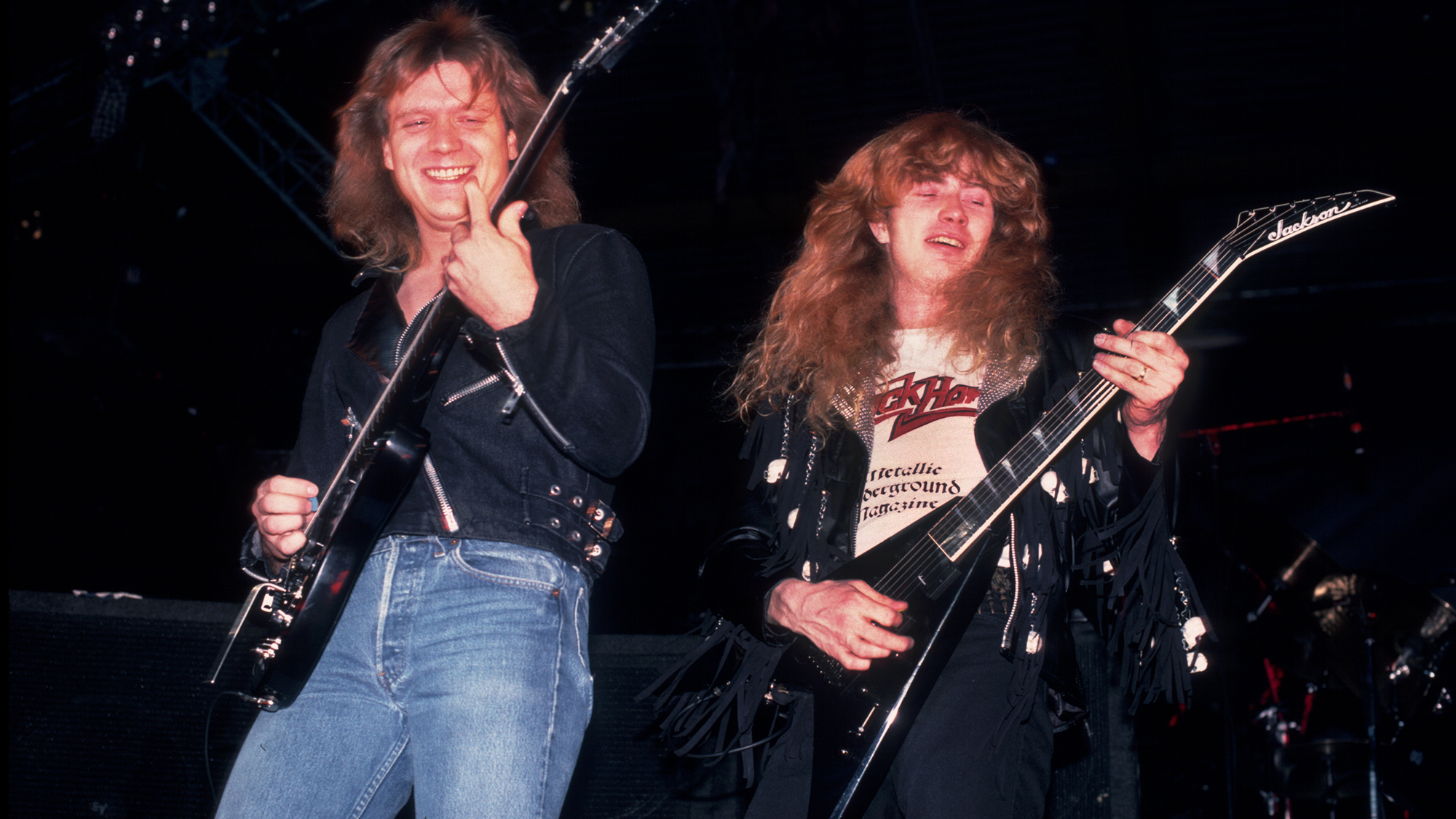Mike Campbell Discusses His New Gig with Fleetwood Mac and an Epic New Tom Petty Box Set
"I feel very blessed for where I am." In an exclusive interview, Mike Campbell discusses his new role in Fleetwood Mac, and the loss of his dear friend and musical partner, Tom Petty
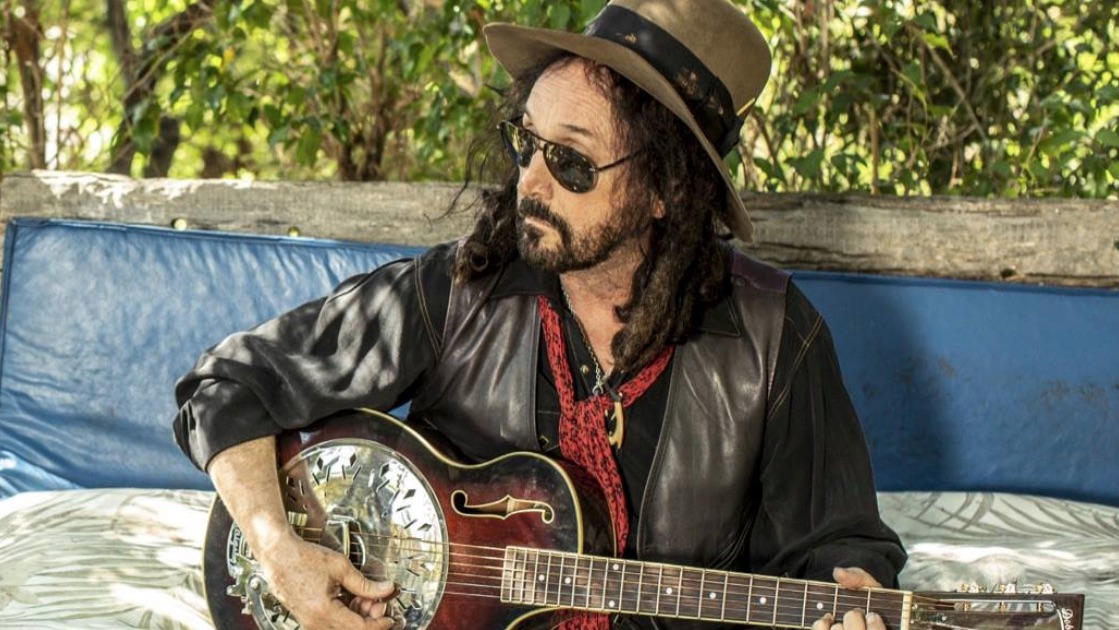
Speak with Mike Campbell for any length of time, and a word that will pop up repeatedly in the conversation is “bittersweet”. And how else to describe the last few months for the guitarist? He is clearly still in mourning for his band mate and friend Tom Petty, who passed away October 2, 2017, at age 66, after accidentally overdosing on the prescription drugs he was taking to treat a fractured hip, emphysema and knee problems, among other health issues. “It’s only been a year since I lost my friend,” Campbell says to Guitar World, just minutes into this interview. But even while he continues to come to grips with such a devastating personal and professional loss, Campbell is excited about his present musical state of affairs, as the new guitarist in Fleetwood Mac following Lindsey Buckingham’s split with the band this past January.
As Campbell tells it, the call to join the legendary outfit, which came right around his 68th birthday — on February 1, 2018 — was wholly unexpected. “I was sitting in my backyard and contemplating my life,” he says. “Still grieving, but just sort of taking in all the changes. And the phone rang, and it was [drummer] Mick [Fleetwood], who I actually knew very little. I had met him and played a few sessions with him over the years, but we never really connected beyond that. And he said to me, ‘I’ve been listening to your music a lot the last several days, and whether you know or not, Lindsey has left the band and we have a tour coming up.’ ”
Fleetwood, it turned out, was interested not only in having Campbell come out on the road, but also in having him sign on as a full-fledged member of the band. “That carried a lot of weight for me,” Campbell says. “Because I wasn’t interested in being a sideman. So I told Mick, ‘Give me 24 hours and I’ll get back to you.’ Because it was kind of overwhelming. And Mick was cool with that. So I thought about it, and I kept going over the pros and cons… and I couldn’t come up with any cons, really. So I said yes.”
And with that, Campbell (along with another new recruit, Crowded House and former Split Enz singer and guitarist Neil Finn), joined with Fleetwood, bassist John McVie, keyboardist and singer Christine McVie and singer Stevie Nicks in the newest iteration of Fleetwood Mac. By the time Guitar World speaks with Campbell at a hotel in Louisville, Kentucky, the new band is already a few dates into their highly touted 2018-2019 world tour. “And it’s been going phenomenally,” he says. “Better than I could’ve hoped. The crowds have been great and we’re having a blast.”
At the same time, Campbell adds, “It’s also emotional. I mean, every night I walk out onstage and look around and [Petty and the Heartbreakers] aren’t there, you know? And I miss them. But that’s part of the process.”
Campbell, it’s worth noting, has not completely put the Heartbreakers behind him. Along with Petty’s wife, Dana, and eldest daughter, Adria, plus Heartbreakers keyboardist Benmont Tench and producer Ryan Ulyate, he recently helped compile a box set, An American Treasure, that gathers Petty album cuts, outtakes, alternate versions, B-sides, live performances and more. The process, he says unsurprisingly, was “bittersweet.”
“There were times when it was joyful and there were times when it was tearful. Sometimes, it was just impossible to deal with it emotionally. But, the whole team worked very diligently to put together something that really showed the strength of Tom’s singing and writing.”
Get The Pick Newsletter
All the latest guitar news, interviews, lessons, reviews, deals and more, direct to your inbox!
And there’s more Tom Petty and the Heartbreakers material on the way. Another compilation, The Best of Everything, came out in November, and a long-in-the-works release celebrating Petty’s 1994 album, Wildflowers, is also on the horizon. “We talked quite a bit about that, and Tom wanted to do it, so out of respect to his desire, we will probably follow through on the Wildflowers project in the not-too-distant future,” he says.
Additionally, Campbell reports that he’s planning to tour with and release an album from his own band, the Dirty Knobs, and that maybe — just maybe — there will even be some recording with Fleetwood Mac. “I think we could make a great record,” he says.

And so while Campbell continues to cherish and celebrate his past, the future — as his old friend once sang — is “wide open.”
“Believe me, I’m grateful,” Campbell says. “And I feel very blessed for where I am.”
Now that the Fleetwood Mac tour is in full swing, have you found there are any particular high points for you during the shows?
There’s lots of high points. My biggest thrill at the moment is doing “Oh Well,” which is an old Peter Green [Fleetwood Mac founder, as well as the band’s original singer and guitarist] song that they asked me to do the vocals on. And that’s been going down really well. I love playing that song. It’s a great guitar riff, too. So I look forward to that song every night. But it’s just a really great set. All the songs are good songs, and the rhythm section, just playing with Mick and John is amazing.
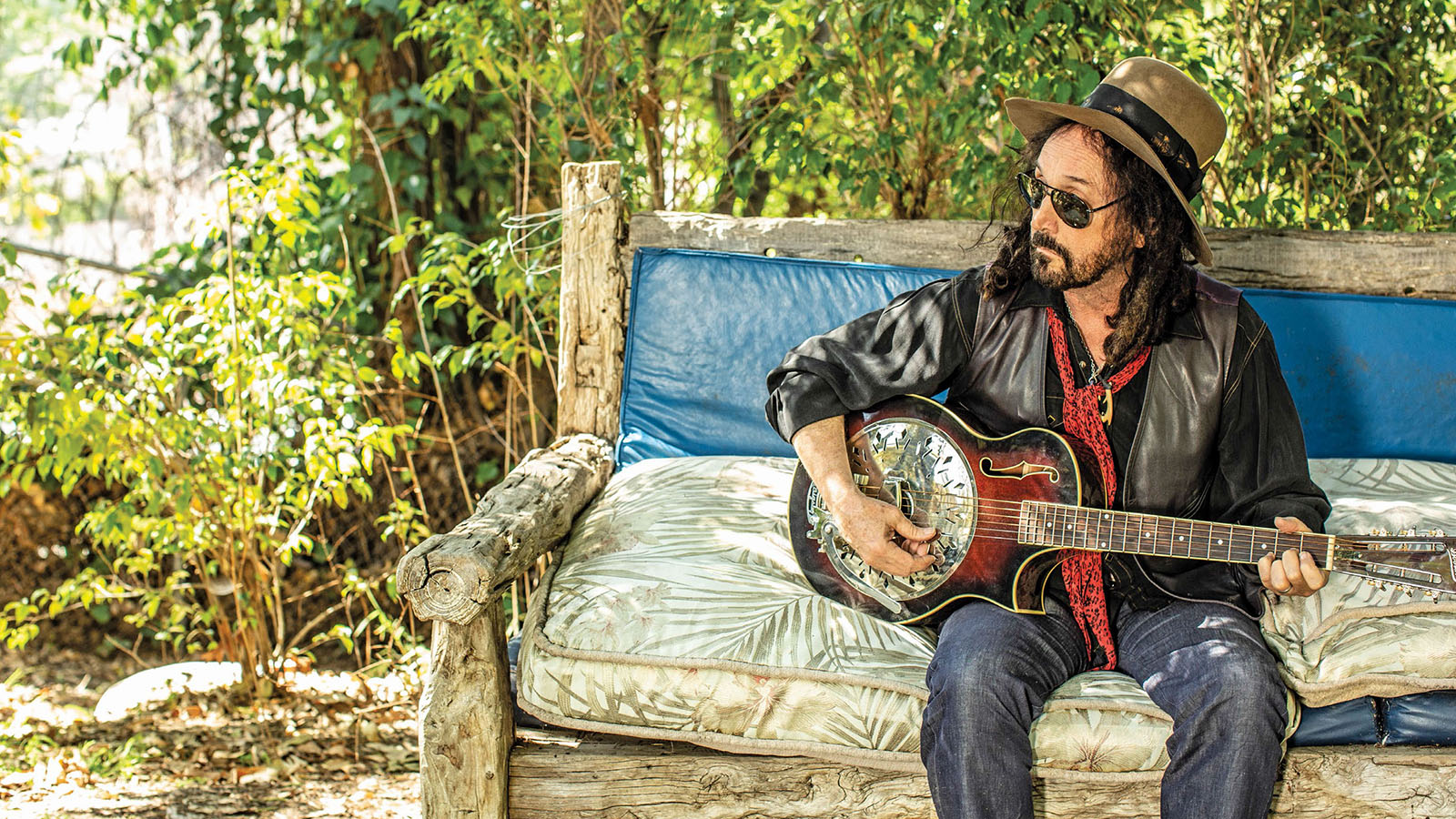
Why do you think Mick asked you to join Fleetwood Mac? What do you do as a guitarist that might have led him to think you’d be a good fit?
That’s a good question. I guess you’d have to ask him his reasoning, but my opinion about it is they wanted somebody that maybe was well-known… but that wasn’t too well-known. [laughs] And I have a history with Stevie. We have a friendship and we’ve written songs over the decades. So that might’ve been part of his thinking, that it would help Stevie feel comfortable because he thought that she might like having me in the band. But you know, Mick has always put Fleetwood Mac together. Over the years, through all their lineups. Mick found Lindsey. And Lindsey brought Stevie. So he’s always been the one to kind of pick the players. And I guess they had a choice of throwing in the towel or to keep going. And they wanted to keep going. So, possibly, he thought my guitar style would fit with them and that I would be able to easily cover any of the songs they’ve already done — and also hopefully bring something new to them, just like I did with my own band. That’s the best I can figure — that they liked what they heard and thought it would be musically cohesive.
Prior to getting that call from Mick, did you have any idea as to what your next move, musically, was going to be?
Yes. And it’s what I’m going to do the first time I get a break from this tour. I have a band called the Dirty Knobs that I’ve had for probably 15 years now, and I’ve worked with them between Heartbreakers tours, mostly just playing clubs and little theaters around L.A. We just recorded a record with [producer] George Drakoulias and it’s about 95 percent done. So I was planning on going ahead with that. It’s on a much smaller scale than Fleetwood Mac, but it’s something that’s artistically rewarding for me and that I’ve always wanted to do. I used to think that, you know, whenever the Heartbreakers retire or take a long break, I’ll do that. I didn’t expect a break to come this way, but I love those guys and it’s a great little band. So we intend to go full steam ahead when we get a little window of time.
When you agreed to join Fleetwood Mac, they already had this world tour on the horizon. I imagine you had to learn a lot of songs — and incredibly fast.
Oh, god. I learned, like, 40 or 50 songs. And it was a labor of love, but it was a lot, you know? And then we quickly realized, “Well, this is way too long.” So we started trimming it down and trimming it down. I think we’re down to 24 songs now, and we have a running order that flows really well. And I’m happy that it’s not just the hits. We left quite a few of the recognizable songs off the set list to make room for some of the older catalog. We’re doing some Peter Green stuff, and we’re doing a [former Fleetwood Mac guitarist and singer] Danny Kirwan song from [1970’s] Kiln House. So they’re allowing a little space for the history of Fleetwood Mac to be exposed. It’s not just the Lindsey/Stevie period, you know? They go back before that to some very valid and exciting music.
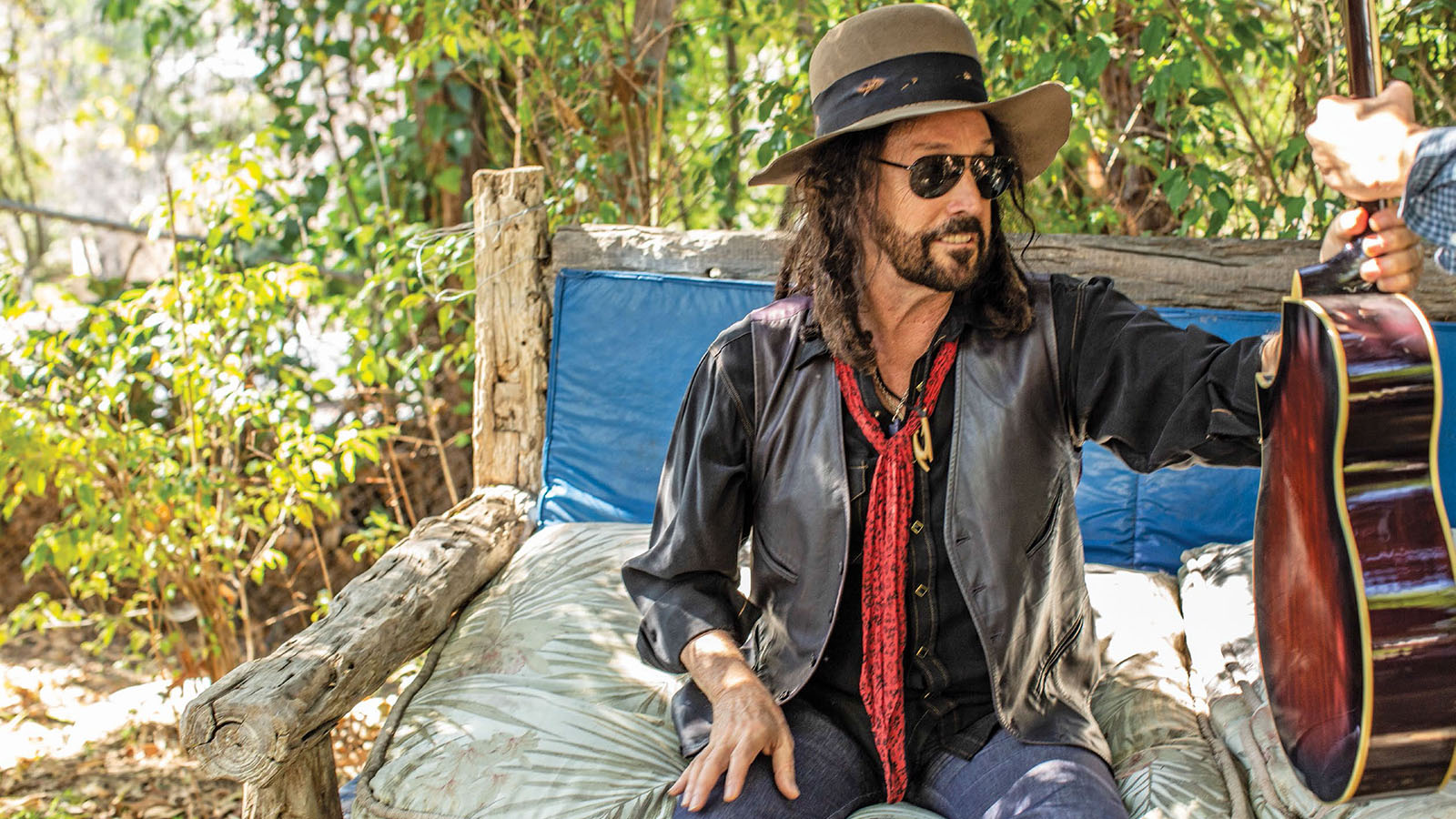
How did you personally go about woodshedding all this material?
With so many songs, I didn’t necessarily learn all the nuances. I kind of got the basics down so that when we played it in rehearsal I would have some idea of how things go. And then I would work out the details on the floor with them. But I approached it like I did with the Heartbreakers. A lot of times we would do covers — Chuck Berry or J.J. Cale or all kinds of cool songs — and whenever we did that I would always listen to the original record and really try to figure out what made it a great record and bring that to the floor. Maybe I’d add a little bit to it but I’d still be very reverent to the original records.
So I did the same thing with these songs. A lot of these guitar parts and arrangements are etched in people’s minds, and I don’t want to go in and just start jamming along on them, you know? I want to define the best nuances of the song. And maybe at the end or in the middle I can bring my personality into it. But I want it to sound like what people are expecting to hear.
A song like “Oh Well,” you played with the Heartbreakers.
Right. And the Dirty Knobs have done it, too. So I knew that one pretty well. And that one clicked right off. But once again, you know, I’m reverent to Peter Green’s arrangement of the main bulk of the song, and then there’s the solo bits where I can do my thing a little.
When people think of your guitar influences in the Heartbreakers, they think of guys like Roger McGuinn and George Harrison.
Sure.
But was a guy like Peter Green big for you at any point?
He was not a big influence but he’s certainly an influence. Because I was influenced by that whole British blues era, from Eric [Clapton] to Jeff [Beck] to Jimmy Page to Mick Taylor. And also Peter Green. I mean, out of all of those, Peter Green was not the one that I keyed into the most, but I have great respect for his writing and his playing. And also his singing — I love the way he sang.
It’s interesting because in some ways Fleetwood Mac — in particular the Peter Green and Danny Kirwan iterations — are forebears of Tom Petty and the Heartbreakers. But the Lindsey/Stevie version of the band is almost like a peer to it.
Yeah. Absolutely. It’s both. And it’s a long history. And that’s why this set is great — you get a lot of the current stuff and the stuff from the middle period, but then we throw in a couple of things that maybe some of the younger people in the audience don’t know. Like, they might not know that Peter Green wrote “Black Magic Woman.” They probably think it’s a Santana song. So it’s a little bit of a history lesson.
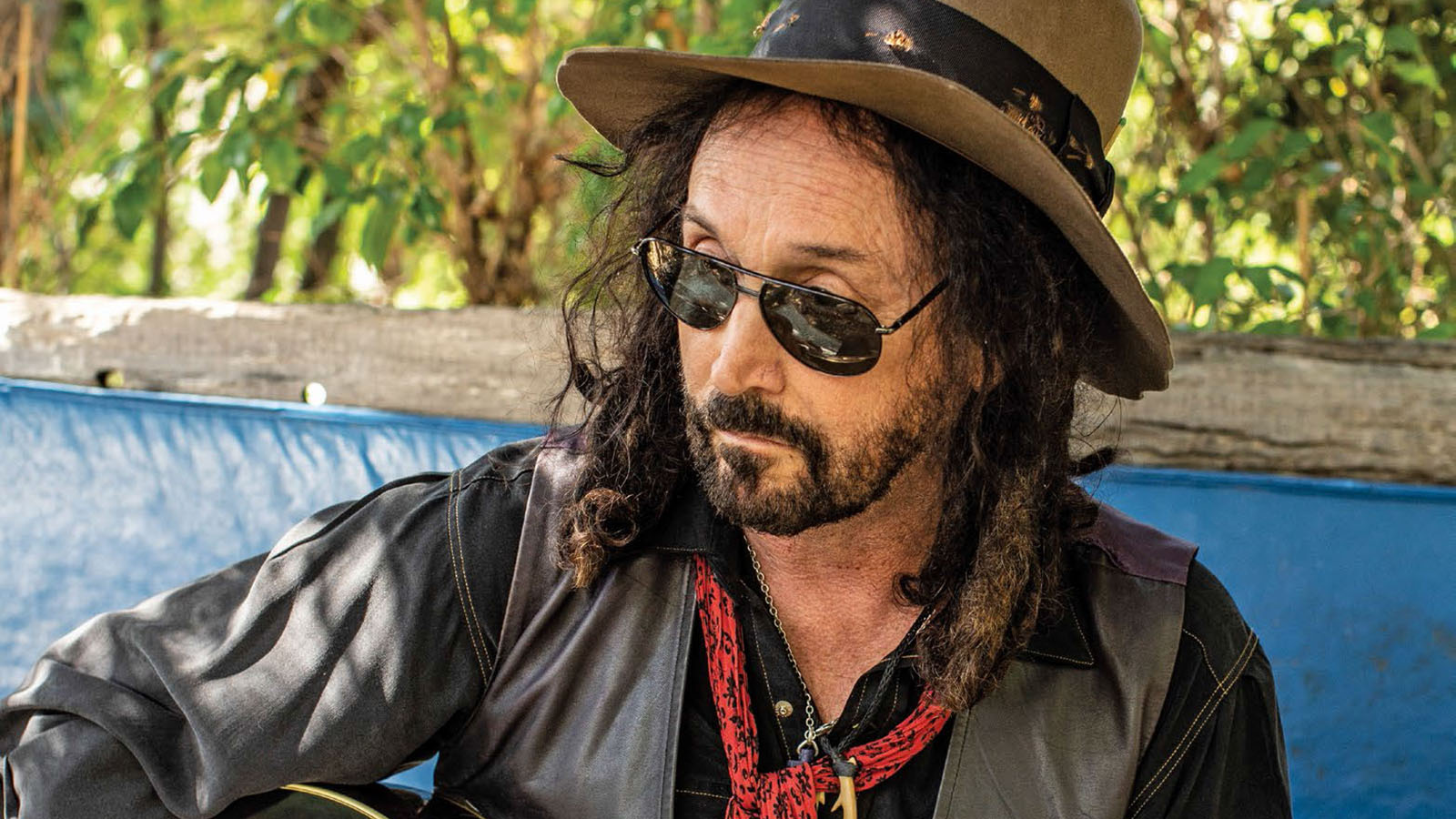
“Black Magic Woman” is one where you get to dip into your blues roots with some nice soloing.
Yes. And it’s great to hear a woman’s point of view, because Stevie sings it. We turned it around a little bit, the character of it. But you know, the first part of the song is true to Peter Green’s arrangement, and at the end it goes into a shuffle where the band can actually play very spontaneously. We jam. I go over by Christine [McVie], she plays a little piano for a while and it’s unrehearsed. And then Mick and I get into a thing and it’s all very on-the-floor, loose, spontaneous playing, which I love to do. So that song represents both sides of the band — the polished side and the exciting by-the-seat-of-your-pants thing.
What guitars are you using onstage?
It’s the same gear I’ve used for quite a while with the Heartbreakers. I have about 10 or 12 guitars, some of which are in non-standard tunings. Mostly I play a clone of my ’59 Les Paul. Gibson made that for me when I first got mine, and I take that on the road. It’s really great. And then I have a Fifties Telecaster that has a B-bender on it. I’ve used that guitar for years and years. It was on all the Mudcrutch records. It’s a workhorse. I use that on “Rhiannon” and several other things. I also have a couple of hollow-body guitars that I didn’t use with the Heartbreakers that I really like. One is a Harmony Rocket, which has some really nice loud pickups on it. I use that on a couple of songs, like “Second Hand News.” And then I have this red ’67 Epiphone Casino with a vibrato arm. I’m using that on a song called “Isn’t It Midnight,” which has a lot of soloing on it. But I have to be careful because it’s a hollow-body, and when you crank it up, if you’re not careful, it’ll howl a little bit. But it’s got a great tone. Then I have a Rickenbacker 12-string I use on “Free Fallin’,” and a Dobro that I use on “Gold Dust Woman.” I play it through my amp with a pickup and it sounds really good.
What are your main amps?
My amp setup is the same that I’ve had for years. It’s a Fender Princeton side-by-side with a Fender Tweed Deluxe. That’s my main sound. And then behind that I have a Leslie that is set on slow. It’s kind of on all the time, just for some depth. And next to that I have a thing called a Fender Excelsior, which I don’t think they make anymore, but they made them a couple of years ago and we liked them so much. It’s got a 15-inch speaker and a little more gain. But mostly my sound is the Princeton and the Tweed Deluxe. And then I have a few pedals — a [Way Huge] Camel Toe boost, a Vox wah, a Line 6 delay and a Line 6 tremolo. Nothing outrageous.
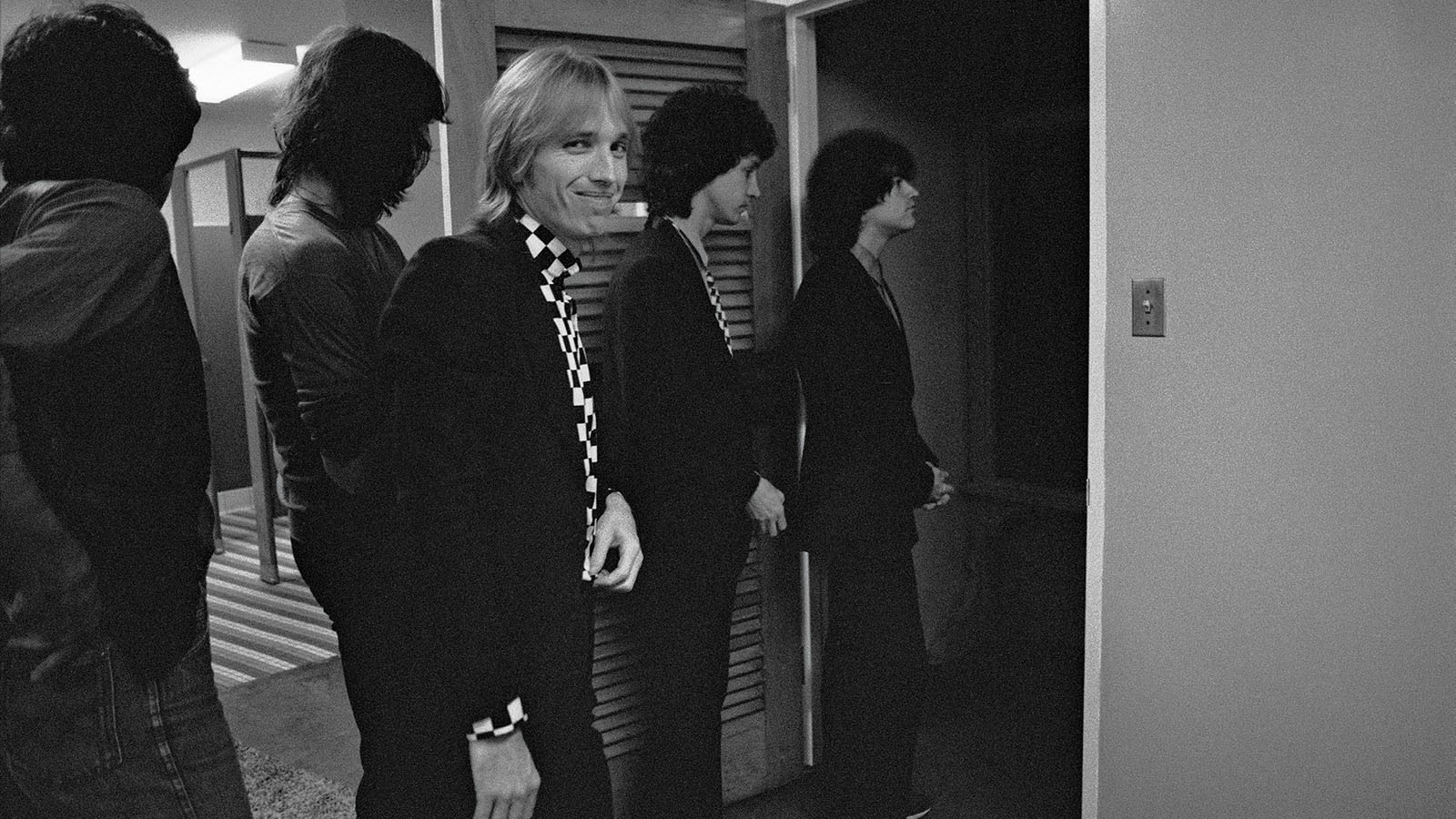
You mentioned earlier that you’re playing “Free Fallin’ ” in these shows.
It was actually Stevie’s idea. And I said, “No, we’re not going to do that.” I mean, I love that song, but I was so tired of playing it and it’s so emotional. But she said, “No, I think we could do this song really well.” And we tried it and she was right. It’s a real emotional high point of the evening. It’s a very sweet tribute and she sings it really well. I get tears, still. But I’m glad we’re doing it. I have a whole new respect for the song because it feels right.
Onstage, there are images of Tom on the screen behind you guys when you play it.
Yeah. That was all Stevie’s idea, too.
I would imagine that doesn’t make it any easier to play the song.
Well, I don’t see the images. I saw them when she showed them to us during rehearsals. She said, “This is what I’m thinking of doing…” And we chose a few shots. But during the show I don’t look back. You know, I have enough trouble keeping it together without those pictures.
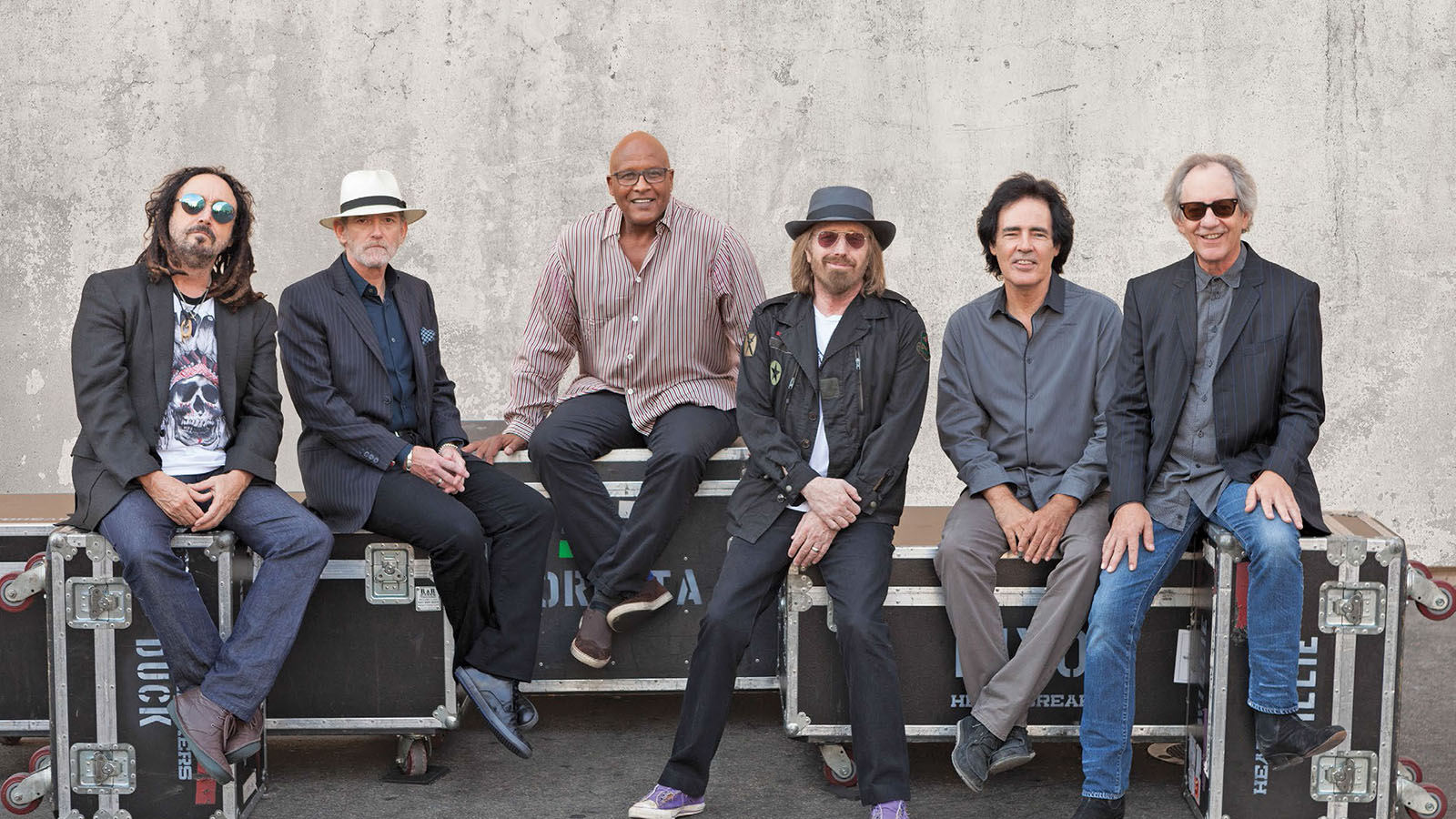
Stevie, of course, had a long relationship with Tom [the two collaborated several times, most notably duetting on “Stop Draggin’ My Heart Around” — written by Petty and Campbell — from Nicks’ 1981 album, Bella Donna].
Yeah. We’re like family. So it means a lot. I think he would be proud of it.
What do you recall about the first time you met Tom Petty?
[laughs] Well, we all had long hair. Actually, I didn’t have long hair. He had long hair. I was living in Gainesville [Florida]. I had a house out on the edge of town with a drummer friend of mine, Randall Marsh. The band I was in with Randall had broken up and I had seen an ad on a student union bulletin board for a band named Mudcrutch that was looking for a drummer. And I’d seen them play on the lawn at the student union — they were kind of a Flying Burrito Brothers country-rock band. And I thought, That’s a pretty good little band… So I told Randall, “You should call them.”
And so one day they came to our house to audition Randall. I was in the back room, and at one point Randall came in and said that their guitar player just quit. “Do you want to come in and sit in?” I said sure. So I walked in and there’s Tom with his long hair, and the other guys with their long hair. I had short hair at the time and I had my cutoff jeans. And I had a $60 Japanese guitar. I looked like a total geek. And I could just see their eyes, like, “Oh, God, this guy’s a loser! This will never work.” It was one of those moments. But I thought, Well, these guys are cool…
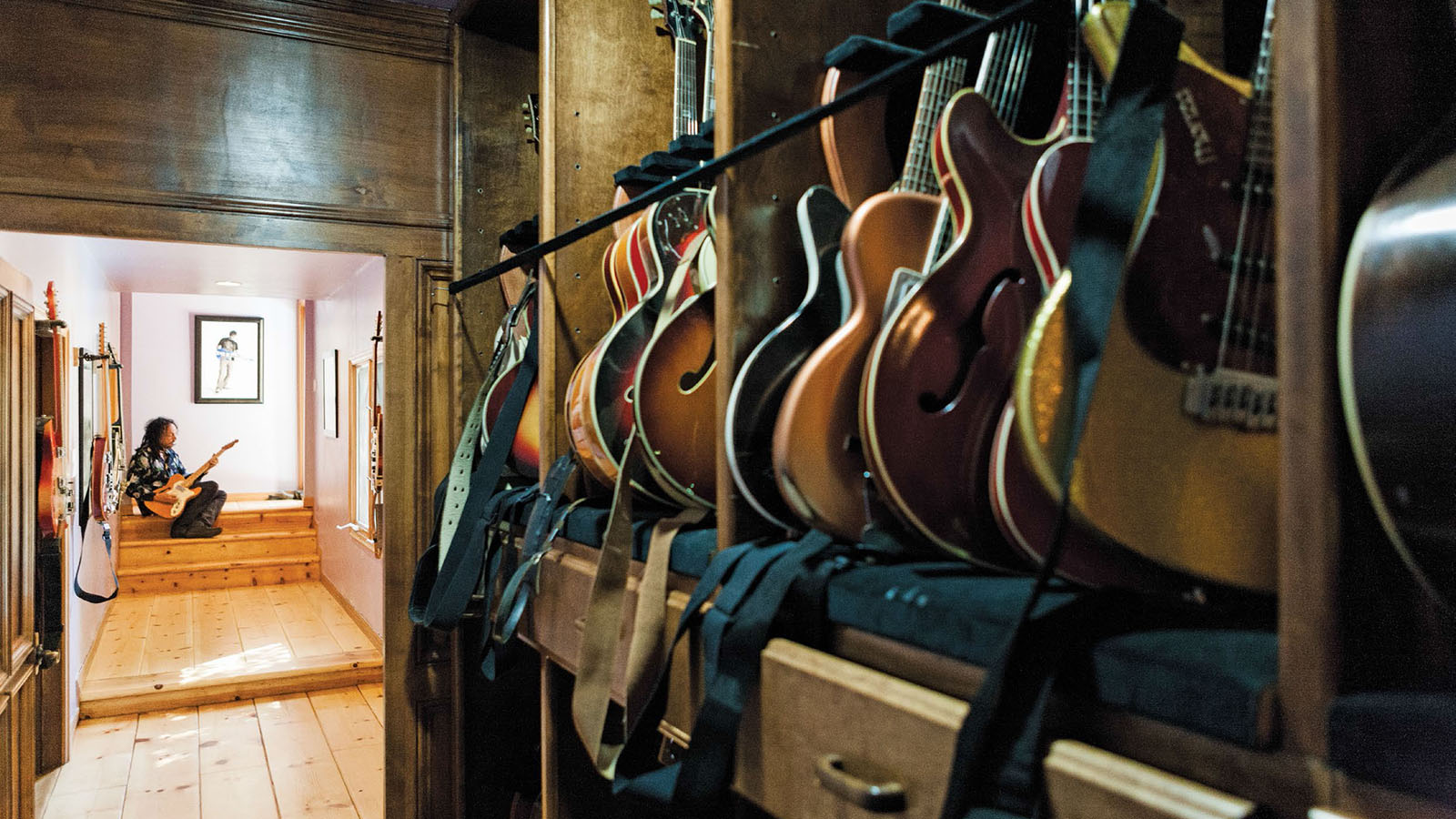
So we sat down and I said, “What do you want to play?” They said, “What do you know?” So I suggested “Johnny B. Goode.” We kicked it off, and at the end of the song Tom looks at me and he goes, “I don’t know who you are, but you’re in my band forever.” That was the night I met Tom.
What was the best thing about making music with Tom?
The quality of it. And the commitment — it was full-on 100-percent commitment that we’re going to make this great and we can make this great. He had great confidence in himself and in our band. And he respected the value of him together with the band, because it just worked. We understood him in a telepathic way. We knew how to play together, and Tom just always had the confidence, like, “I’ve got the shit, follow me.” And we did.
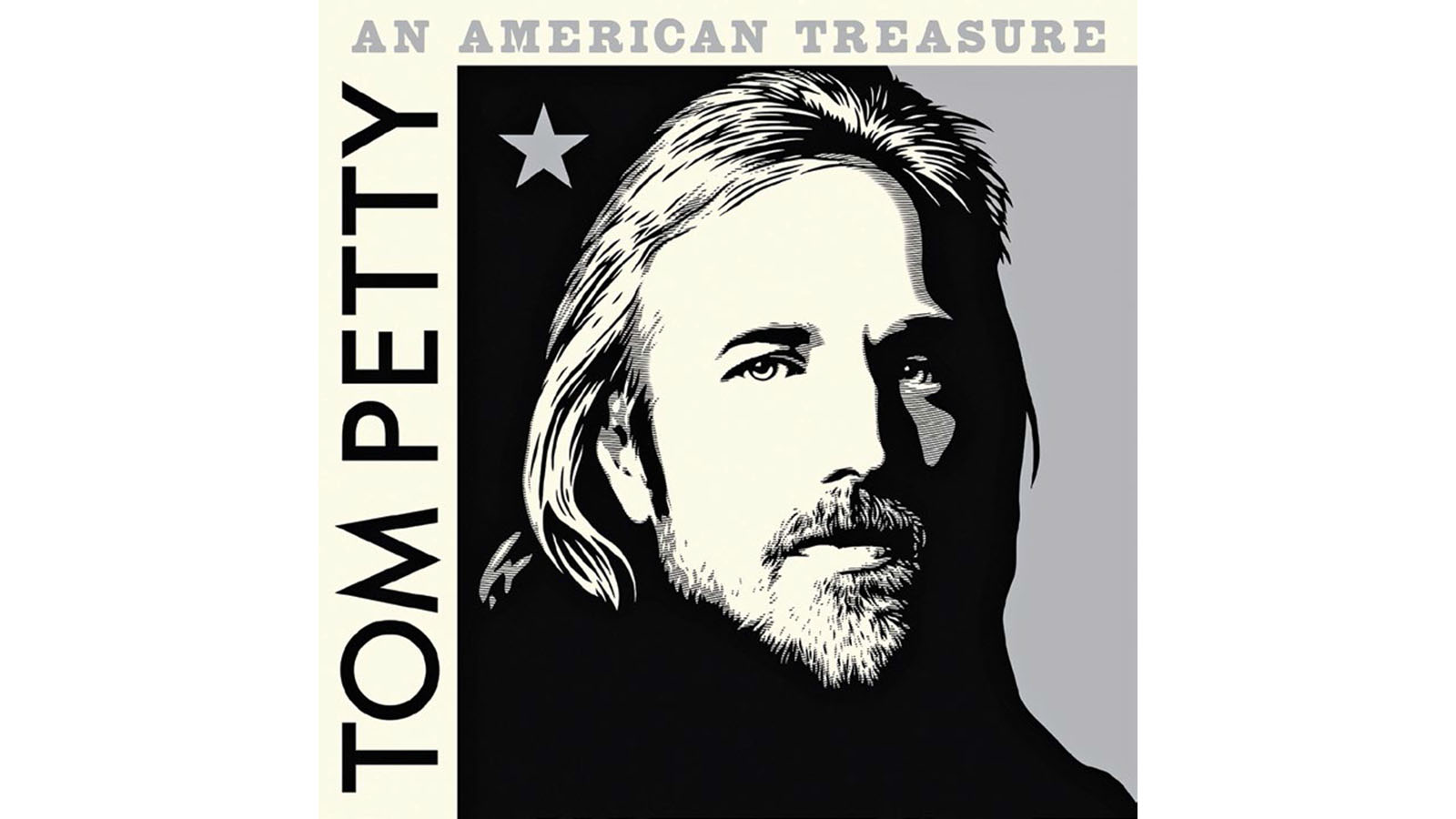
You’ve intimated that at some point in the future the Heartbreakers might play together again.
That’s a tough one. I don’t know. I love those guys and we’re such a great band, but to get up in a room with them and without Tom at this point in my life would just be heartbreaking. I don’t think I can emotionally deal with that right now. But in the future, maybe when our grief is in a different phase, possibly we’ll find some situation where we can all work together and it won’t feel so painful. But it’s hard for me to see that right now.
Would you imagine there might be new Fleetwood Mac music at some point?
I’m hoping, I mean when I was asked to join the band, my first thought was, “Let’s go in and get some good songs and make a record.” And I think that’s on their minds as well. But they have this tour commitment so that’s taking up the whole focus right now.
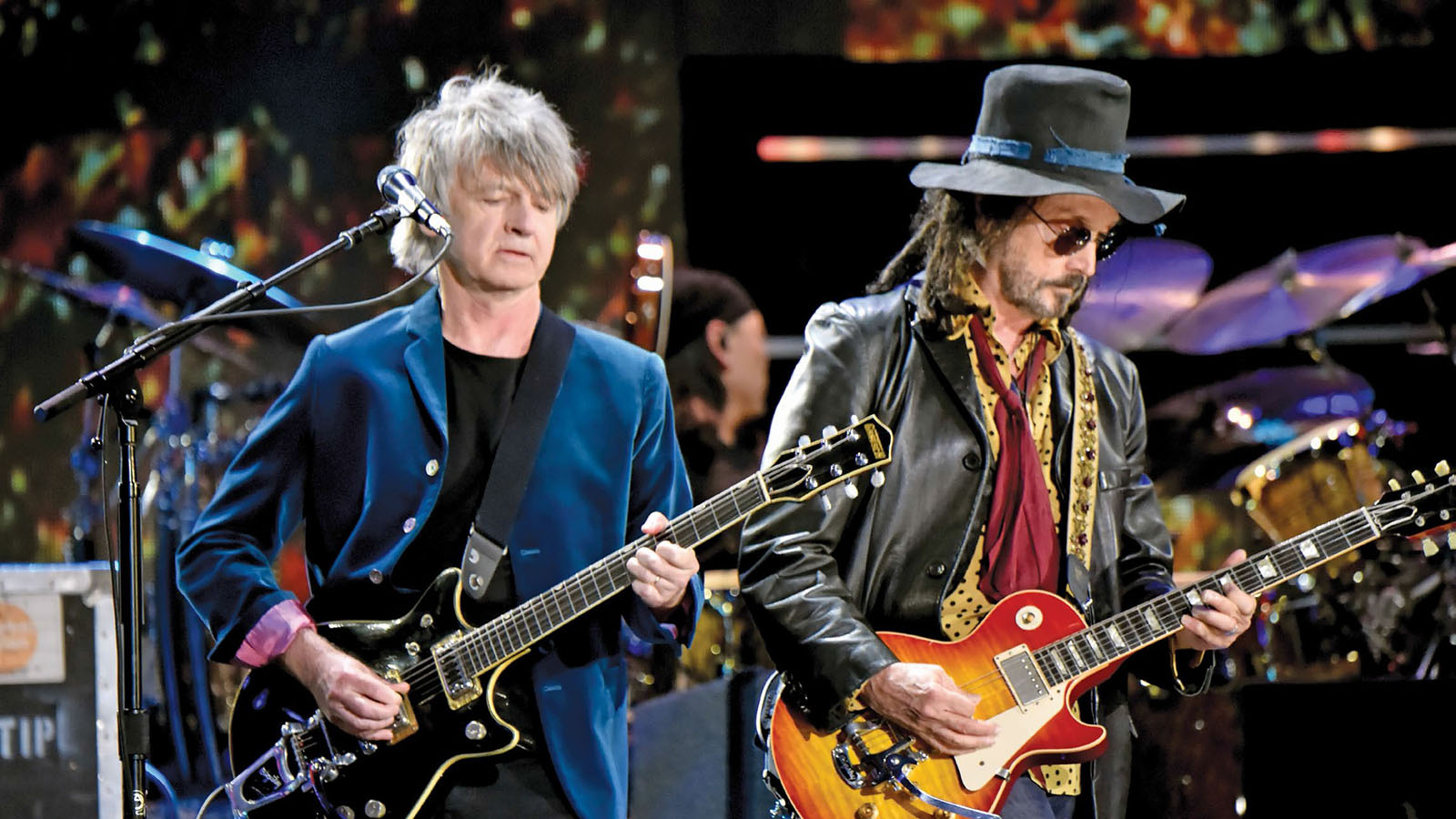
But at the end of all this activity, if we’re still friends [laughs], I would love to go in and write some songs and make a record. I think we could make a great record. So we’ll see what the future holds.
Rich is the co-author of the best-selling Nöthin' But a Good Time: The Uncensored History of the '80s Hard Rock Explosion. He is also a recording and performing musician, and a former editor of Guitar World magazine and executive editor of Guitar Aficionado magazine. He has authored several additional books, among them Kurt Cobain: Montage of Heck, the companion to the documentary of the same name.
“I just learned them from the records. I don’t read tabs or anything, I don’t read music – I learned by ear”: How a teenage Muireann Bradley put a cover of Blind Blake’s Police Dog Blues on YouTube and became a standard bearer for country blues
“The Strat was about as ‘out’ as you could get. If you didn’t have a Floyd Rose, it was like, ‘what are you doing?’”: In the eye of the Superstrat hurricane, Yngwie Malmsteen stayed true to the original





